
Money Stories
11:23, 11-Feb-2019
Gazans seek to grow economy away from political pressures
By Khaled Alashqar
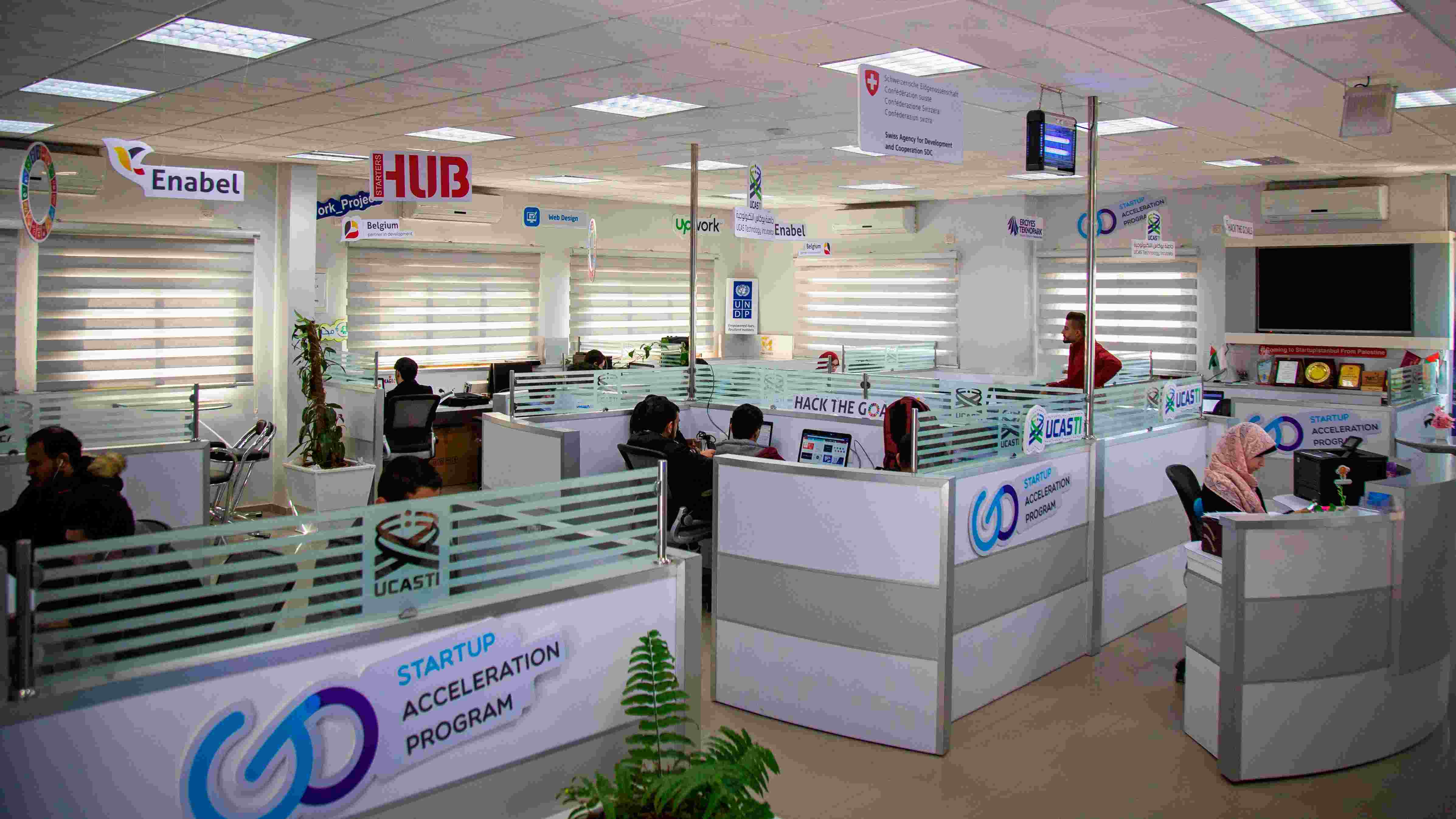
The decision of the United States to cut funding for programs that benefit Palestinians has put the spotlight on how the territories in the occupied West Bank and Gaza are seeking to increase self-reliance.
Agencies such as the UN Relief and Works Agency and the UN World Food Program have all been forced to slash their aid budgets for Palestinians after the cuts were ordered by President Donald Trump.
As a result, some 190,000 Palestinians classified as below the poverty line are no longer receiving food aid through the UN program.
Clearly, the cuts were intended to put pressure on the president of the Palestinian Authority (PA) Mahmoud Abbas, who had suspended all contacts with the U.S. administration after Trump recognized Jerusalem as the capital of Israel, and moved the American embassy there from Tel Aviv.
In light of the several financial and political crises hitting the Palestinians, the local economy faces a severe situation.
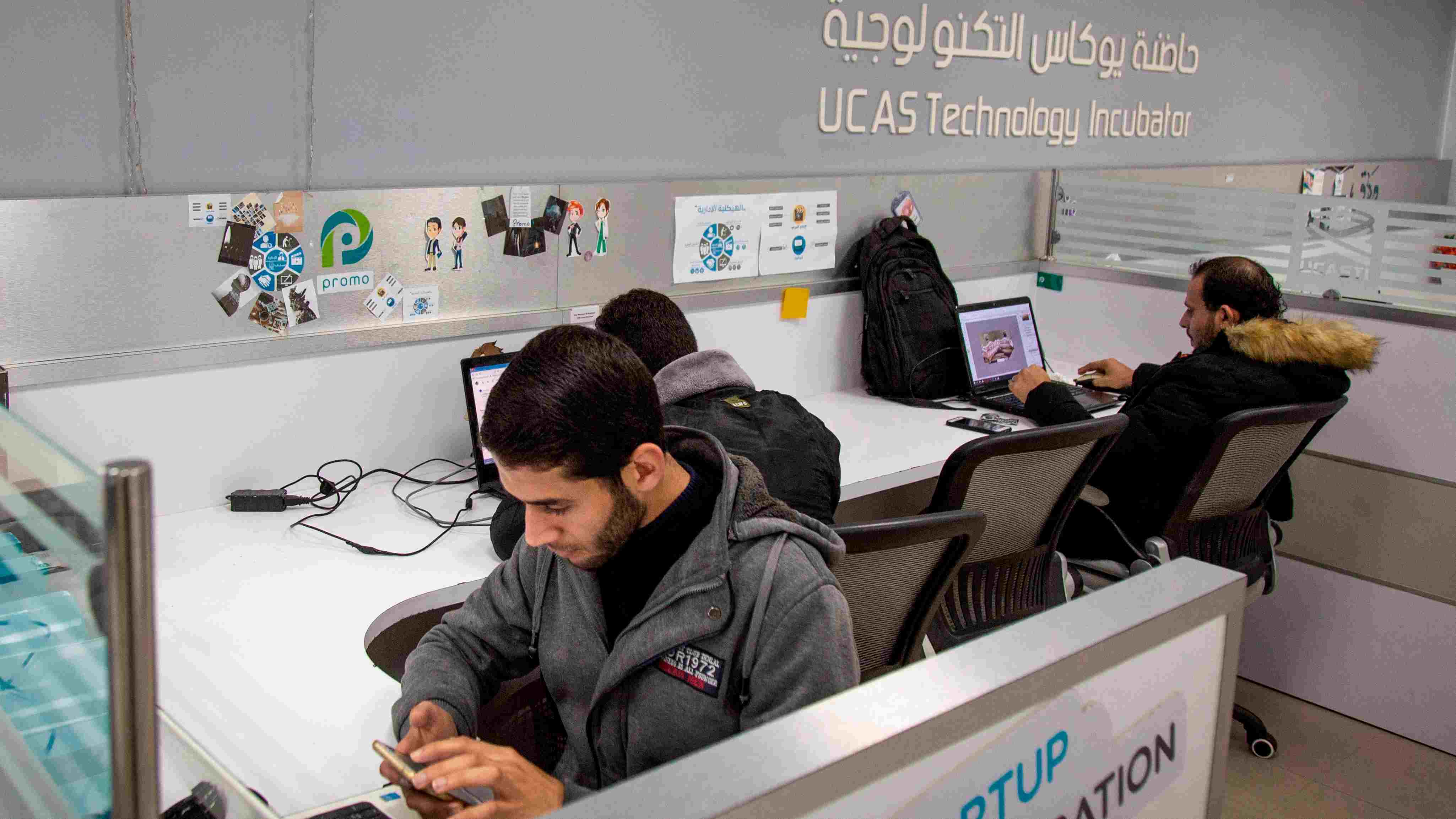
Young Palestinian entrepreneurs working in a technology incubator. /CGTN Photo
Young Palestinian entrepreneurs working in a technology incubator. /CGTN Photo
UCAS Incubator is one organization in the Gaza Strip trying to make life better for the Palestinian people by supporting young entrepreneurs who have promising innovative ideas. It provides them with financial, administrative and technical support which they need to start up their projects, supports them to be independent and productive and helps to integrate them into the Palestinian labor market.
Tariq Thabit, program manager of the organization, told CGTN that his association had contributed to creating new job opportunities for Palestinian youths.
“Our incubator includes 70 Palestinian income-generating firms," he said. "We encourage Palestinian youths and provide them with all the facilities that they need to broaden their small projects which are considered part of local economy. Many of these firms now offer local and external marketing services. It was someone's idea and now the firms are employing as many people and this helps boost the local economy in Gaza.”
Over two million people live in the coastal Gaza Strip which has the highest unemployment rate in the world standing at 54 percent, according to the Palestinian Central Bureau of Statistics. The agency linked the high jobless rate to the tightened blockade Israel imposed on the territory 12 years ago, as well as the repercussions of internal division.
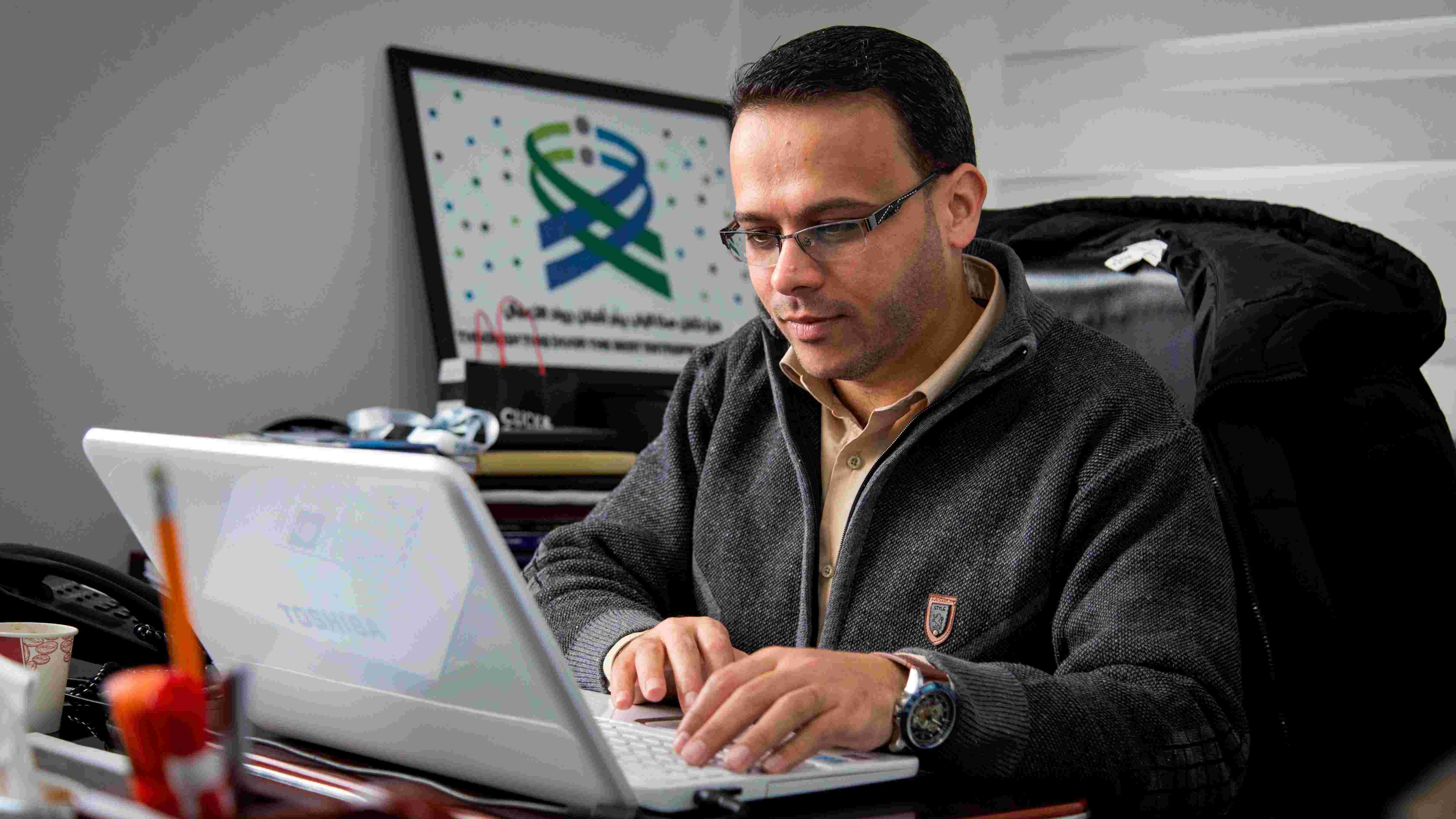
Program manager at UCAS Incubator Tariq Thabit./ CGTN Photo
Program manager at UCAS Incubator Tariq Thabit./ CGTN Photo
However, the Palestinians are struggling to fight poverty, and create innovative ways to overcome the blockade and reduce their dependency on foreign aid through technology and small projects, some of which managed to cross the walls and reach markets outside Gaza.
Agricultural engineer Hisham Shreim created an app which helped improve the production in the agriculture sector in Gaza. His program involves directly linking 1,500 greenhouses to an electronic system to help farmers to rationalize the use of water and pesticides.
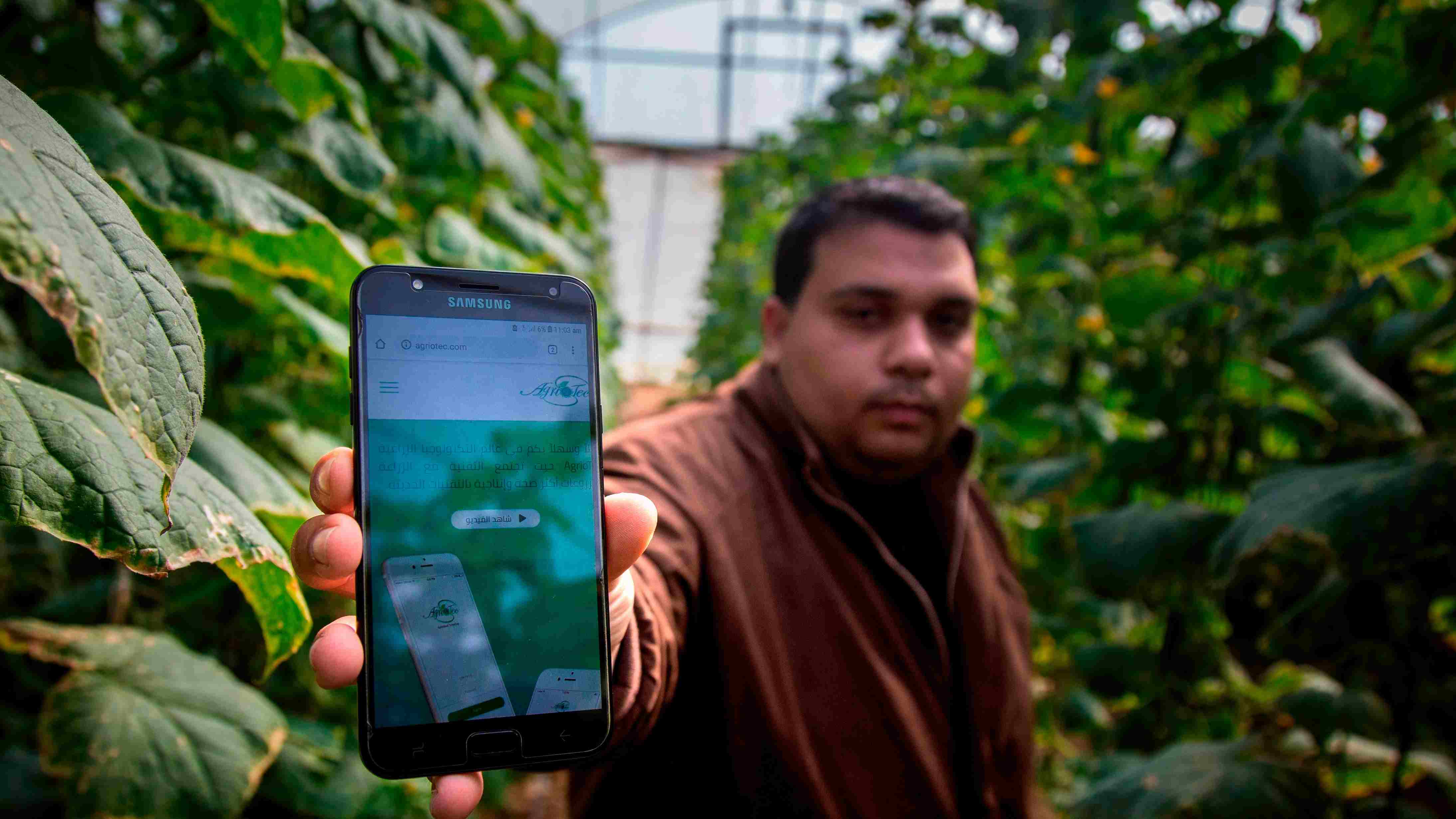
Agriculture engineer Hisham Shreim displays his application to help farmers in Gaza./ CGTN Photo
Agriculture engineer Hisham Shreim displays his application to help farmers in Gaza./ CGTN Photo
“It would also improve quality production of agriculture crops, increase revenues, and the share of agriculture in gross domestic product," Shreim told CGTN.
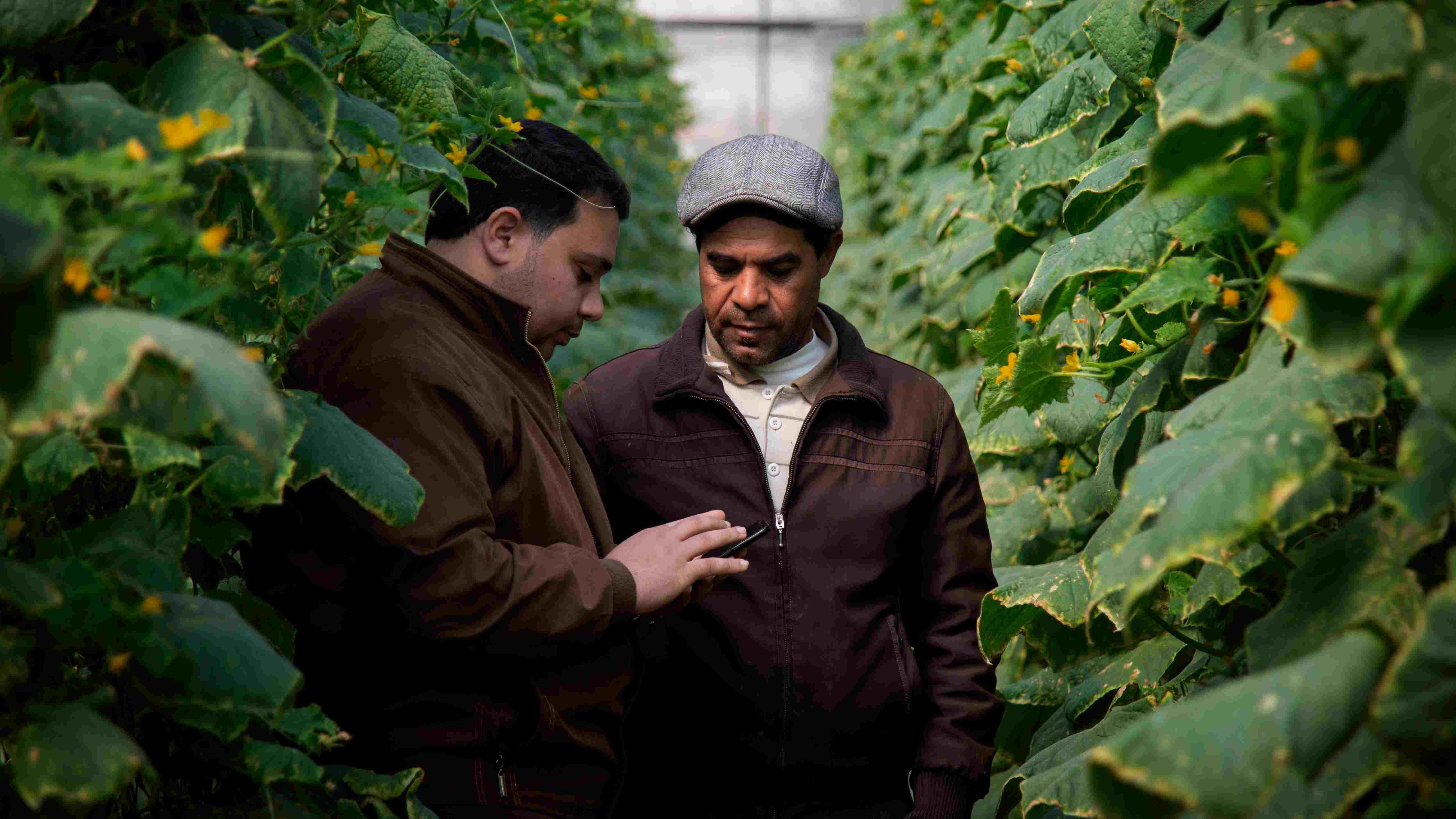
Agriculture engineer Hisham Shreim follows crops development via the app with a farmer. / CGTN Photo
Agriculture engineer Hisham Shreim follows crops development via the app with a farmer. / CGTN Photo
Such innovative projects are an example confirming the ability of Palestinians to build and develop the local economy. The projects can also decrease unemployment rates, create new work opportunities, and reduce dependency on foreign aid which is constantly linked to political pressures.

SITEMAP
Copyright © 2018 CGTN. Beijing ICP prepared NO.16065310-3
Copyright © 2018 CGTN. Beijing ICP prepared NO.16065310-3